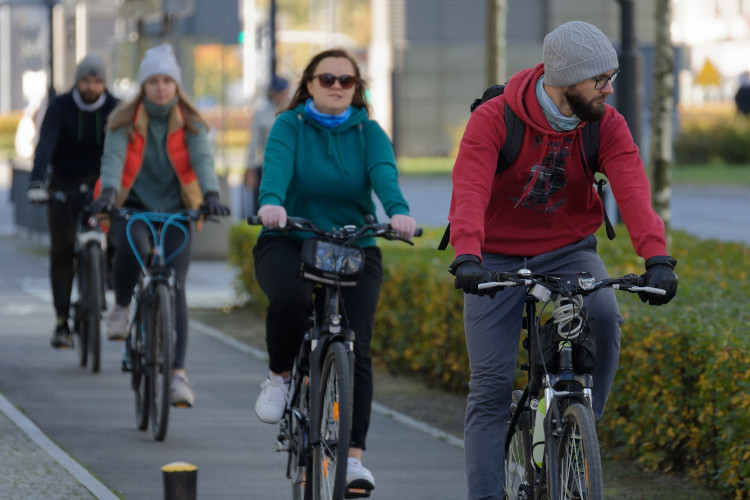Data shows bike lanes get people cycling and improve perceptions of public spaces.
Posted on in Business News , Cycles News
New research from the European Cyclists' Federation (ECF), a Brussels-based advocacy group, has confirmed that if a city has more bike lanes, more people will cycle. The results will give campaigners and urban planners a substantial footing to argue for more cycling infrastructure in towns and cities around the world.

Alongside this headline result, the research has shown that residents rate public spaces higher in cities with more cycling infrastructure, demonstrating that more bike lanes makes cities more pleasant for everyone, even those of us who do not ride a bike.
The research combined a large-scale quality of life survey from the European Commission with existing research into cycling infrastructure from the ECF.
The European Commission survey interviewed over 70,000 people from cities across Europe, investigating the factors that influence quality of life. The survey covered 83 cities in both EU and non-EU countries, including the UK, Turkey, Ukraine, the Western Balkans, and Scandinavia.
Among the range of questions, which covered everything from safety to finances and culture, was a question about cycling. The 70,000 survey respondents were asked whether they use cycling as their main mode of transportation on a typical day.
The ECF combined the data from the European Commission with their own data from their report, 'Quantifying Europe’s Cycling Infrastructure using OpenStreetMap', which compared the amount of cycling infrastructure between cities across Europe.
The ECF compared cities by quantifying how many kilometres of cycling infrastructure there was in each city in proportion to the number of kilometres of total road infrastructure. Taking those figures together as a ratio, they could rank each city for its level of cycling infrastructure.
With a clear picture of how much cycling infrastructure there was in each city, they could compare those results to the quality-of-life survey and look for correlations.
The clearest finding, and the one that is the most important for the ECF’s role as advocates for cycling, was that there was strong correlation between the amount of cycling infrastructure in a city and the amount of people who say they use cycling as their main mode of transport.
"So if you have lots of cycling infrastructure, people will also cycle more,” explains Holger Haubold, the ECF’s Director of Data.
“It might seem obvious, but for many politicians it’s not obvious yet that if you invest in cycling infrastructure, people will also cycle more, with all the benefits that this brings, in terms of public health through physical activity, in terms of congestion reduction, in terms of, of course, climate change.”
The survey data also revealed that cycling infrastructure improves perceptions of public spaces, proving that bike lanes make cities more pleasant for everyone, whether you are a cyclist or not.
“There was a specific question in the quality-of-life survey on how satisfied people are with public spaces in their city,” explains Holger.
Again, the cities that scored well for this question were the cities with the highest proportion of cycle lanes.
“There is a clear correlation between how satisfied people are with public spaces in the city and the existence of cycling infrastructure.”


